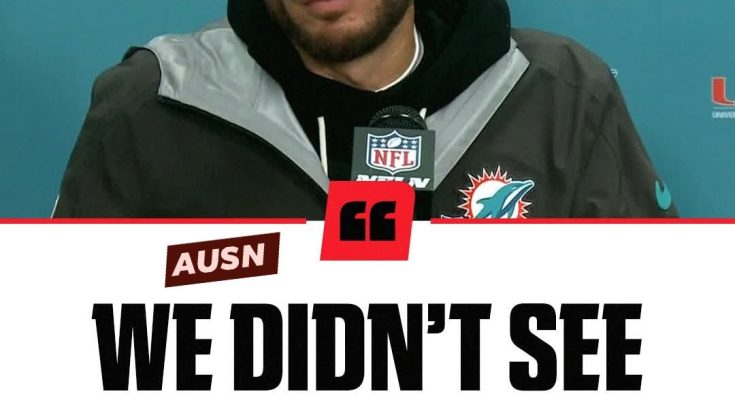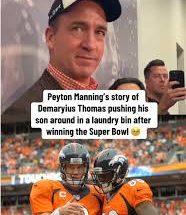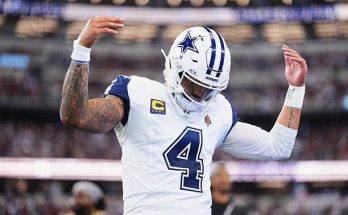It was a rough day for the Miami Dolphins. One of those games where everything that could go wrong, did. Every unit — offense, defense, special teams — seemed either out‑matched, unprepared, or simply flat‑out unlucky. To call it disappointing would be an understatement; it was a setback on multiple fronts, a moment where the momentum they hoped to build instead felt like it was sinking beneath them.
The scoreboard told a clear story. The Dolphins fell to the Cleveland Browns by a lopsided 31–6 defeat, dropping their record to 1‑6 on the season. ) But beyond the raw numbers, the way the game unfolded raised deeper concerns about the team’s identity, leadership, and resilience.
Offensively, the team looked stalled. Their star quarterback, Tua Tagovailoa, managed just 12 completions for 100 yards, but more importantly threw three interceptions and was eventually benched. Turnovers were a major story: Miami surrendered four giveaways that the Browns turned into 21 points. The running game offered a glimmer — De’Von Achane broke off a 46‑yard run and generated some momentum. () But that spark was fleeting, and the play‑calling lacked adaptability. Against a team that came to win in the trenches, Miami failed to sustain drives or counter when the opponent adjusted.
The defense didn’t fare much better. For a unit that needs to keep games within reach to give the offense a chance, the Browns delivered efficient drives, capitalised on penalties that extended possessions, and once again exposed Miami’s secondary. (SI) One such drive started with back‑to‑back penalties — illegal contact and roughing the passer — which allowed Cleveland to gain momentum right at the start. Mistakes like those don’t just cost yards; they cost spirits.
Special teams and situational football also looked off. Penalties, missed opportunities, lack of pressure at crucial moments: all combined to create a very long afternoon. When you can’t rely on the “in between” phases to trim the opponent’s advantages, you leave the starters with more to pull back, and too often it doesn’t happen.
What surely stings most is the condition of this franchise. Coming into the game, expectations were higher. The Dolphins had preached aggressive offense, loose yet disciplined defense, and a belief that this season would be a springboard. To arrive at 1‑6 is not what anyone envisioned. From the opener — a humbling 33‑8 loss to the Indianapolis Colts — the warning signs were already blinking. (Wikipedia) In that game, Tua’s arm strength looked diminished, the coaching staff appeared to be overthinking defensive adjustments, and the offense looked more tentative than explosive. (SI)
Now you add the blowout at Cleveland, and the question for the franchise isn’t just “how do we fix the next game,” it’s “who are we right now?” Head coach Mike McDaniel acknowledged the self‑inflicted nature of many of the errors, emphasising accountability and unity. (Reuters) But when accountability is being spoken openly, when the locker room is questioned publicly, you wonder whether the right structures are in place to support a turnaround.
Tua himself was blunt: “I’m not proud of where I am,” he said. (Reuters) There’s no sugar‑coating the numbers: a career‑worst passer rating, multiple turnovers, and a benching. Each of those by itself would be a concern. Together, they raise bigger alarms. The signal and the noise are drowning each other out, and at the moment the noise is louder.
From the fan perspective, frustration is bubbling into something more ominous. On Reddit, longtime supporters who’ve seen enough feel fatigued, like the heart’s been telling them “we’re not built for this” for years, and moments like this game just deepen the scar tissue. (Reddit) The optimism that comes with the new season, the promise of “this is our year,” gets chipped away not by close losses but by performances that seem both incompetent and uninspired.
Of course, there were some positive snippets. That Achane run was electric, a reminder of what this team can do when they let their speed go. The depth chart includes some promising youngsters. But positive flashes don’t erase the patterns. You can’t lean on “we’re still young” indefinitely if you’re asking for a playoff berth or at least a respectable showing.
The Browns game also exposed depth issues, adaptability problems, and schematic weaknesses. The Dolphins’ options off the bench weren’t enough to mount any sort of comeback or at least make the opponent uncomfortable. The opponent didn’t have to do much; they just executed cleaner, exploited mistakes, and let the game drift to their favor.
Looking forward, the upcoming game against the Atlanta Falcons looms large. It is not merely about salvaging a season, it is about sanity and process. Do you improve your fundamentals — penalties, situational awareness, depth development, leadership — or do you let this spiral? A loss there could spiral the confidence and standards into something much darker.
Also hanging over all of this is the quarterback and coaching future. Tua is under contract, and the organization’s commitment to him is high. McDaniel likewise has tenure and a reputation for building. But as his job security comes into question amidst such a start, the decisions loom. The owner, Stephen Ross, may claim no immediate moves, but when performance dips and expectations stay high, the friction builds. (The Phinsider) What happens when the season becomes not about making noise but just avoiding embarrassment?
Fans will try to hold on to hope. They’ll remind themselves of the past two seasons when this team appeared to be leaning forward. They’ll point to glimpses of the explosive offense, to the talent on the roster, to the proven coaching vision. But games like this — a 25‑point loss to a team with similar record, where you were expected to win but dominated physically anyway — don’t allow hope to just carry you. They demand answers.
Because the NFL is ruthless: while every team loses sometimes, how you lose says volumes. You can lose close because you made mistakes but fought. You can lose because you got out‑matched. But you rarely want to lose because you let the opponent dictate terms, because you failed to engage, because you allowed self‑inflicted wounds. And that is the scar from this day.
The Dolphins’ season isn’t over. They still have time to regroup. They still have talent. They still have the fan base, which even when frustrated, remains engaged. But for all that, the next stretch is now littered with more than just “let’s rebound” — it’s about reaffirming identity, catching sanity, and earning trust back from a fanbase that’s now used to excitement being followed by deflation.
Sunday was painful. It was embarrassing in parts. It was disappointing in almost every quarter. But sometimes that kind of low is what wakes you up. The question now: do the Dolphins wake up — or stay in bed?



